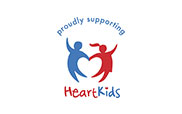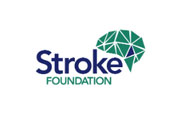This is a rare condition where an abnormality in the heart?s electrical system leads to a very fast heart or erratic heart rhythm. These abnormal heart rhythms can cause the heart to pump inefficiently. This can mean that the brain does not receive enough oxygen, which can cause fainting, seizures or, in some cases, death. This condition can be inherited genetically, or it can have other causes, often due to taking certain medicines.
Some people with LQTS do not experience any symptoms. When symptoms are present, they can include:
Generally, the heart will return back to its normal rhythm by itself, but if this doesn?t happen, death can suddenly occur. Due to this, diagnosis and proper treatment are important.
You could be at risk of LQTS if there is a history in your family of unexplained fainting or sudden death. You are also at risk if you take medicines that prolong the QT interval. Your doctor can let you know whether any medicines you take can do this.

Can include:
![]() Medicines such as beta blockers, which work by slowing your heart rate and reducing blood pressure. This can help to improve symptoms such as an abnormally fast heart beat.
Medicines such as beta blockers, which work by slowing your heart rate and reducing blood pressure. This can help to improve symptoms such as an abnormally fast heart beat.
![]() Having an implantable cardioverter defibrillator (ICD). This may be used for people for whom beta blockers do not work. ICDs can help treat arrhythmias when they occur, and have the benefit of reducing risk of cardiac arrest. Risks associated with having an ICD include infection when having the device surgically implanted, damage to blood vessels caused by the ICD leads, blood leaking through the heart valve where the ICD lead is placed, and lung collapse. There is also a small chance that the device may fail before it is due to be replaced, or that the ICD leads may move within the body and another surgery may be needed to put them back in place.
Having an implantable cardioverter defibrillator (ICD). This may be used for people for whom beta blockers do not work. ICDs can help treat arrhythmias when they occur, and have the benefit of reducing risk of cardiac arrest. Risks associated with having an ICD include infection when having the device surgically implanted, damage to blood vessels caused by the ICD leads, blood leaking through the heart valve where the ICD lead is placed, and lung collapse. There is also a small chance that the device may fail before it is due to be replaced, or that the ICD leads may move within the body and another surgery may be needed to put them back in place.
Your doctor will discuss the risks and benefits of this treatment with you. An ICD can reduce risk of cardiac arrest and improve your quality of life.





